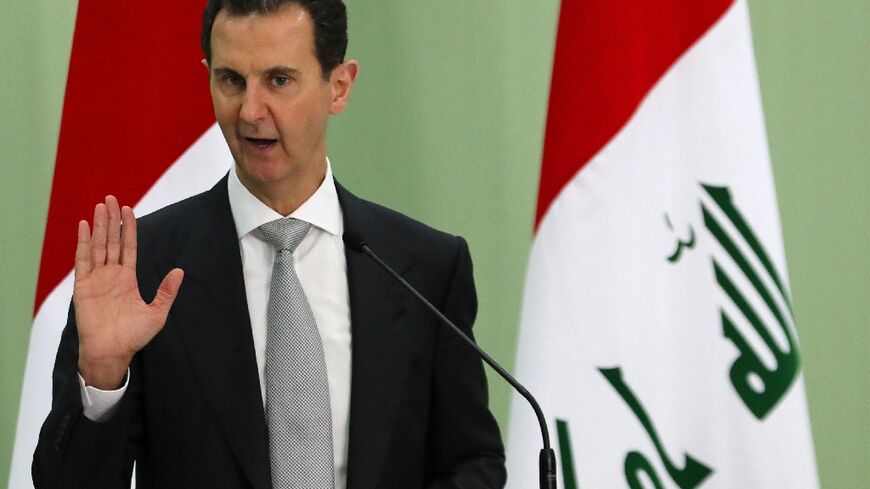Paris court upholds France's arrest warrant for Assad: What we know
Syrian President Bashar al-Assad is wanted in France for his alleged involvement in a 2013 chemical attacks in Ghouta and Douma that left as many as 1,000 people killed.

A French court upheld an arrest warrant for Syrian President Bashar al-Assad on Wednesday, adding momentum to recent European cases against the Syrian leader and other officials for alleged war crimes.
The Paris Court of Appeal ruled that the French warrant for Assad is valid. Jeanne Sulzer and Clemence Witt, the lawyers representing the plaintiffs who filed the complaint against the Syrian president, described the ruling as “a giant step forward in the fight against impunity,” the Associated Press reported.
Background: In 2021, France began an investigation into the August 2013 chemical attacks in Ghouta and Douma, two suburbs of the Syrian capital Damascus. Death toll from the attacks ranged from hundreds to well over 1,000 according to the Syrian Observatory of Human Rights. The areas were under the control of Syrian rebel groups at the time.
A United Nations investigation later that year concluded that the sarin nerve agent was used in Ghouta. The United States, France, and much of the international community blamed the regime for the incident. The Syrian government has denied responsibility.
Last November, French judges issued an arrest for Assad; his brother and head of the army’s 4th Division, Maher al-Assad; and two generals, Ghassan Abbas and Bassam al-Hassan. The warrant was issued for their alleged complicity in the 2013 chemical attack.
In May, French National Anti-Terrorism Prosecutor's Office asked the Paris Court of Appeal to rule on the validity of the warrant for president Assad. At the time, the office raised concerns about the legal immunity for heads of state, the French newspaper Le Monde reported at the time.
Sovereign immunity is a legal principle that stipulates a state’s immunity from the jurisdiction of courts in another country. France is believed to be the first country to issue an arrest warrant for a sitting head of state in another country, according to Agence France-Presse.
Heads of state have been pursued by international courts. In 2009, the International Criminal Court issued an arrest warrant for then Sudanese President Omar al-Bashir, making him the first sitting head of state to receive such a warrant from an international court.
Sulzer and Witt told the Associated Press that the French court’s decision demonstrated that immunity for heads of state has limits.
“It’s the first time that a national court has recognized that the personal immunity of a serving head of state is not absolute,” they said.
Why it matters: The Paris court’s ruling follows other notable cases in Europe against Syrian government officials for alleged war crimes. Also in May, France began a trial in absentia of three Syrian security officials for their role in the deaths of two French Syrian men in 2013.
In March, Switzerland charged Rifaat al-Assad, the president’s uncle, with war crimes over the 1982 massacre of civilians in Hama.
A Swedish court acquitted former Syrian Gen. Mohammed Hamo earlier this month for alleged crimes in the ongoing civil war. The court ruled that the prosecution did not prove Hamo’s involvement in attacks, according to AFP.





